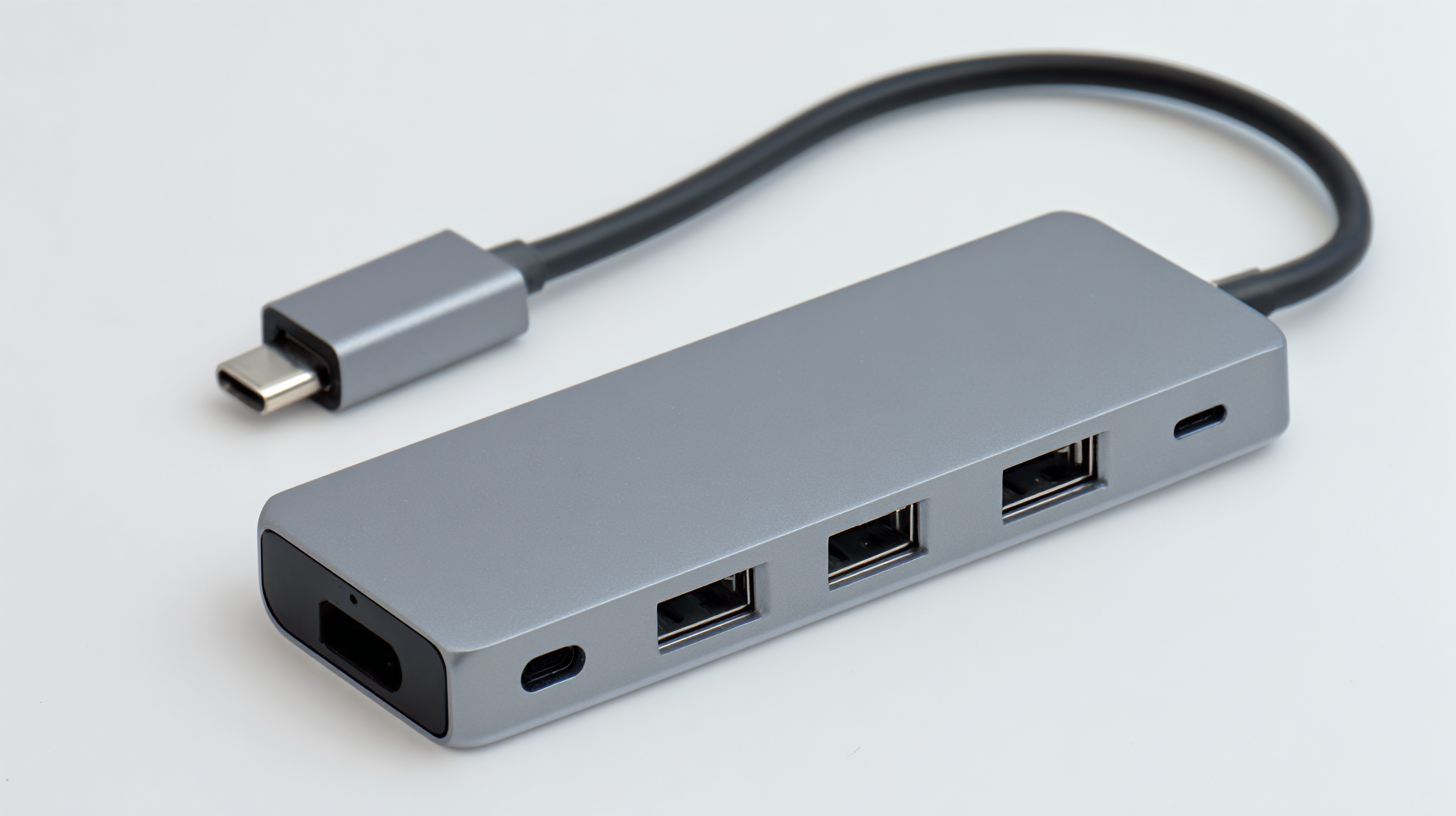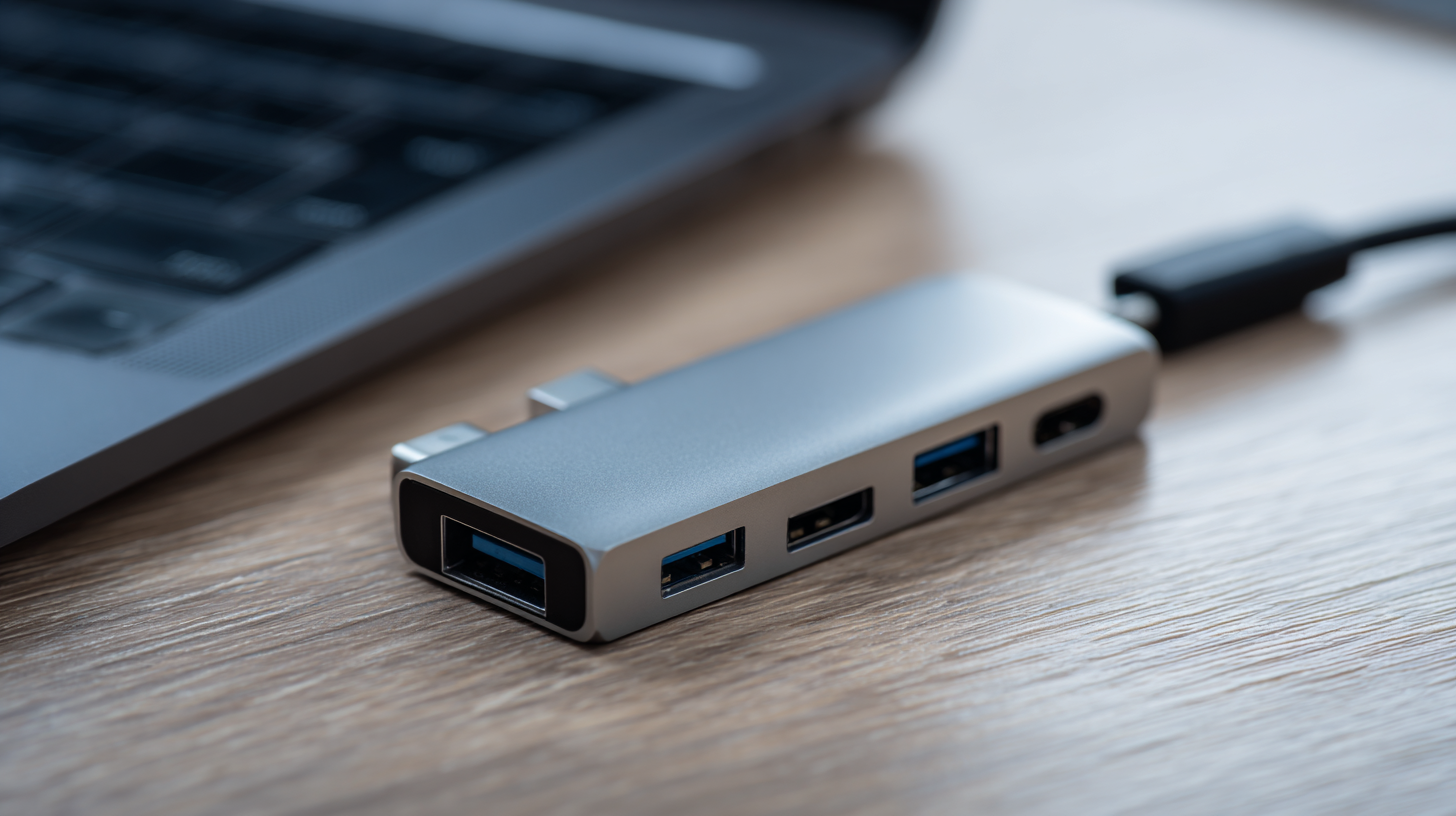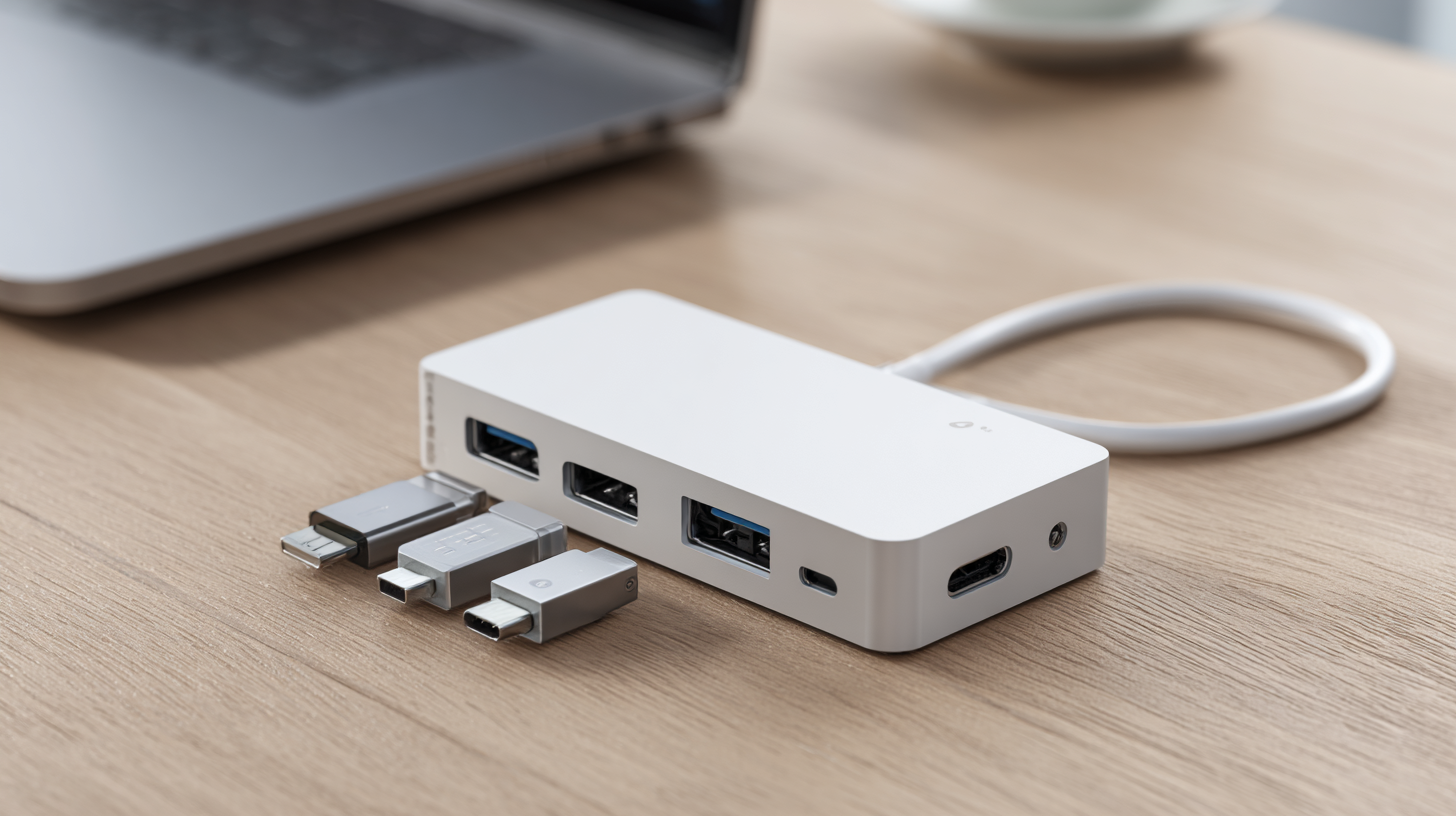
-
Home
-
Products
-
About Us
-
OEM&ODM
-
News
-
Contact Us
Inquiry
Form loading...

In today's tech-driven world, the Docking Station USB C Adapter has become an essential accessory for professionals and casual users alike, enabling seamless connectivity between devices. According to a recent report from Grand View Research, the global docking station market is projected to reach $4.9 billion by 2027, driven by the growing need for efficient workspace solutions and multi-device connectivity. However, with increased demand comes challenges, particularly in after-sales service and repair costs.

Users often find themselves grappling with compatibility issues and varying quality standards. These challenges not only affect user experience but can also significantly impact operational expenses. This blog will delve into the key challenges associated with Docking Station USB C Adapters, highlighting examples of user experiences and the crucial role of effective after-sales support in mitigating these issues.
 A quality USB-C docking station adapter is essential for maximizing the functionality of your devices. As we increasingly rely on laptops and mobile devices for both work and leisure, the ability to connect multiple peripherals seamlessly has become crucial. A reliable USB-C adapter not only ensures a stable connection but also enhances the performance of your devices. With the right adapter, users can effortlessly connect monitors, keyboards, mice, and external drives—enabling a more efficient workspace.
A quality USB-C docking station adapter is essential for maximizing the functionality of your devices. As we increasingly rely on laptops and mobile devices for both work and leisure, the ability to connect multiple peripherals seamlessly has become crucial. A reliable USB-C adapter not only ensures a stable connection but also enhances the performance of your devices. With the right adapter, users can effortlessly connect monitors, keyboards, mice, and external drives—enabling a more efficient workspace.
The significance of investing in a high-quality USB-C docking station becomes even clearer when considering the potential challenges of using subpar options. Inadequate power delivery can lead to sluggish device charging, while poor data transfer speeds may hinder productivity. Furthermore, compatibility issues may arise with different devices, resulting in frustrating experiences for users. By choosing a reputable docking station, users can alleviate these concerns and enjoy a streamlined, effective setup that supports their everyday tasks.
Ultimately, understanding the importance of a quality USB-C docking station adapter empowers users to make informed choices that enhance their digital lives.
When using USB-C docking stations, many users encounter a variety of challenges that can hinder their overall experience. One of the most common issues is compatibility. According to a report by the Institute of Electrical and Electronics Engineers (IEEE), nearly 30% of docking station users experience connectivity problems due to incompatibility with their devices. This often stems from varying USB-C specifications, where not all ports support power delivery or data transfer at high speeds. Ensuring your devices are compatible with the dock's specifications is crucial for a seamless connection.
Another prevalent challenge is the limited number of ports available on USB-C docking stations. A recent study by IDC found that 25% of users felt that their docking stations lacked sufficient ports to accommodate all their peripherals. This limitation can lead to frustration, especially for professionals requiring multiple connections for monitors, USB drives, and other devices.
**Tip:** When purchasing a docking station, consider your device's specifications and future needs. Look for models with extra ports and additional features like power delivery to keep your devices charged while connected.
Performance issues can also arise, with many users reporting decreased transfer speeds compared to direct connections. According to an analysis by Consumer Reports, around 20% of docking station owners noted significant speed drops while using their devices through a dock.
**Tip:** Choose a high-quality docking station from reputable brands, as they often provide enhanced data transfer rates. Checking reviews and user feedback can guide you in finding reliable products that maintain performance while connected.
When considering a USB-C docking station adapter, understanding the essential features can significantly enhance your productivity and device compatibility. One of the most critical aspects is the number and variety of ports. According to a report by ResearchAndMarkets, the global USB-C docking station market is expected to grow at a CAGR of 7.5% from 2021 to 2026, indicating a strong demand for versatile connectivity options. A quality adapter should offer multiple USB-A and USB-C ports, HDMI or DisplayPort outputs for external monitors, and an ethernet port for reliable internet connectivity.

Another vital feature to look for is power delivery (PD) capability. A docking station that supports PD can charge your laptop while simultaneously running peripherals, reducing clutter and the need for multiple chargers. Research shows that nearly 53% of professionals require a seamless transition between work devices, making power delivery an essential criterion for today’s hybrid work environments. Moreover, compatibility with various operating systems is paramount; an effective docking station should function flawlessly with both Windows and macOS to cater to a diverse user base. By focusing on these key features, users can ensure they select a docking station that meets both their current and future connectivity needs.
When using a USB-C docking station, users often encounter a variety of issues that can disrupt productivity. According to a report from TechInsights, over 45% of tech users experience some form of connectivity problems with their USB-C devices, underscoring the importance of understanding how to troubleshoot effectively. Issues may arise from incompatible devices, outdated drivers, or cable deficiencies that can lead to frustrating malfunctions.
To mitigate these challenges, here are a couple of essential tips: First, always ensure that your docking station firmware is updated. Manufacturers like Dell and HP frequently release updates to resolve bugs and enhance compatibility with new devices. Second, check your cables; high-quality, certified USB-C cables are crucial for maintaining power delivery and data transmission efficiency. A report from Gartner indicated that nearly 30% of connection problems stem from subpar cables, making this aspect a critical focus for users.
Additionally, if you're experiencing display issues, try rebooting both the docking station and your connected devices. This simple step can often reset the connection and restore functionality. Regularly consulting manufacturer FAQs can also provide insight into common problems and their solutions, demonstrating how proactive maintenance can significantly enhance the user experience with USB-C docking stations.
When it comes to USB-C docking stations, users today are faced with a myriad of options, each tailored to different needs and devices. The primary types available include multi-port adapters, which offer a range of connections such as HDMI, USB-A, and Ethernet; standalone docks that come with their own power supply; and portable models designed for on-the-go users. Each type has its unique advantages, whether it's the versatility of multi-port adapters or the convenience of portable solutions.
Comparative considerations often revolve around compatibility, performance, and additional features like charging capabilities. For instance, some docking stations support Power Delivery (PD), allowing laptops to charge while connected, which is particularly useful for users with limited outlets. Others focus heavily on data transfer speeds, making them more suitable for professionals dealing with large files. Thus, evaluating your specific requirements—be it for gaming, office work, or content creation—is essential when navigating the array of USB-C docking stations on the market today.